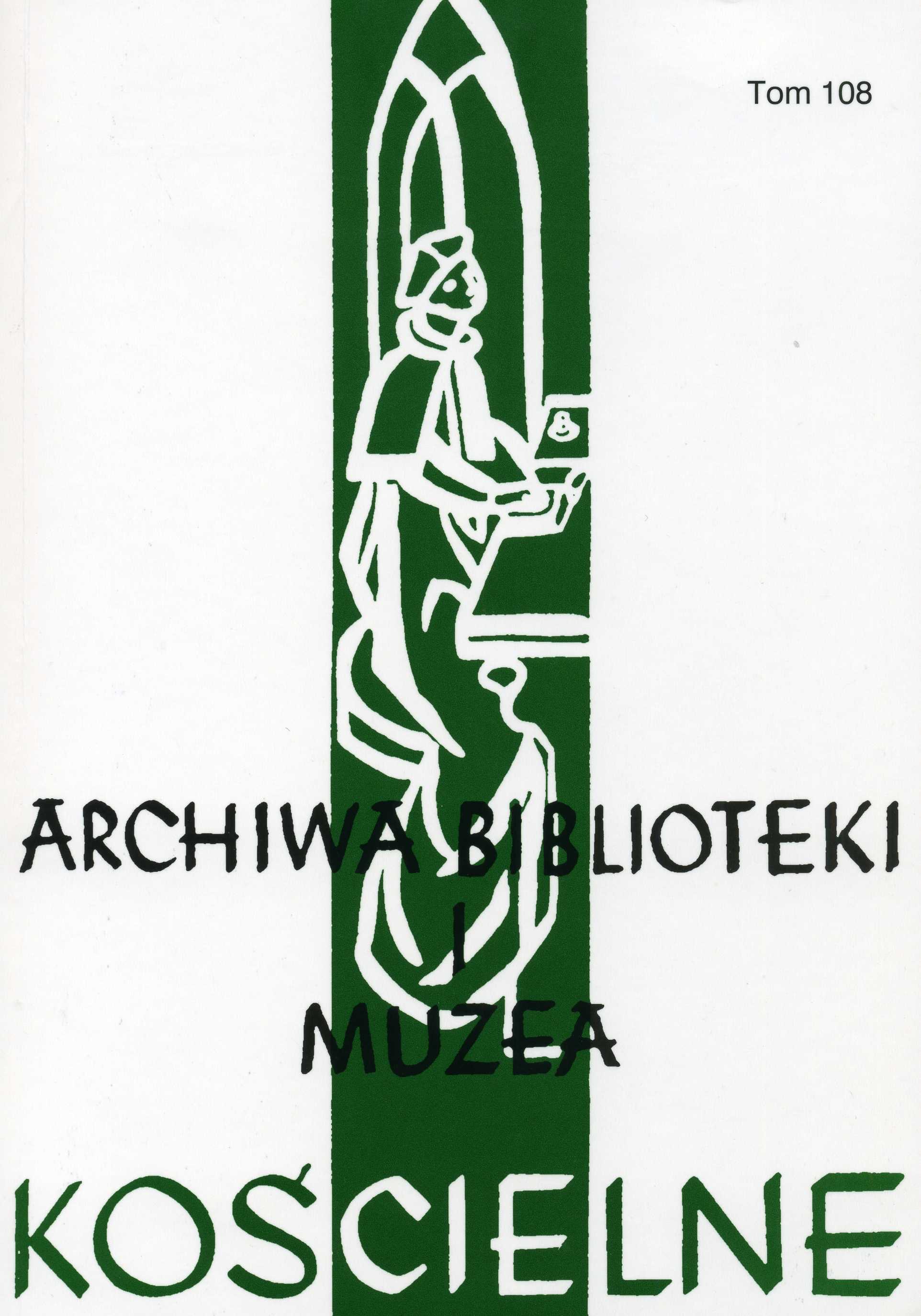Kasata klasztoru Kanoników Regularnych w Kraśniku w 1864 roku
The dissolution of the monastery of the Canons Regular in Kraśnik in 1864
Author(s): Dominik ZamiatałaSubject(s): Christian Theology and Religion, Cultural history
Published by: Katolicki Uniwersytet Lubelski Jana Pawła II - Wydział Teologii
Keywords: the dissolution of religious orders; the tsarist authorities; the Canons Regular; a tsarist ukase; Kraśnik
Summary/Abstract: Monks’ religious and patriotic activities, their impact on the formation of national consciousness, especially among the rural people, as well as their considerable influence and participation in religious and patriotic manifestations in the early sixties made the tsarist authorities aware of social and political danger connected with the links between monasteries and the Kingdom of Poland. Consequently, parishes, monasteries and monks were put under surveillance. The outbreak of the uprising and the involvement of monks in it gave the Russians a convenient pretext for eliminating them from the sphere of social life through dissolving religious orders. One of these monasteries to which the occupying authorities paid attention was the monastery of the Canons Regular in Kraśnik, where the monks were actively involved in Polish patriotic manifestations, and some of them took an active part in the January Uprising. On 27 November 1864, the occupying authorities, pursuant to the tsarist ukase, dissolved this monastery. It was conducted in accordance with the instructions, prepared by the Russians, on how to take over the monastery – in the presence of the military and local authorities. As a result, some monks were transferred to the Pauline Monastery in Jasna Góra, two monks were left until the church and the parish of Kraśnik had been taken over by diocesan clergy.
Journal: Archiwa, Biblioteki i Muzea Kościelne
- Issue Year: 2017
- Issue No: 108
- Page Range: 329-347
- Page Count: 19
- Language: Polish

